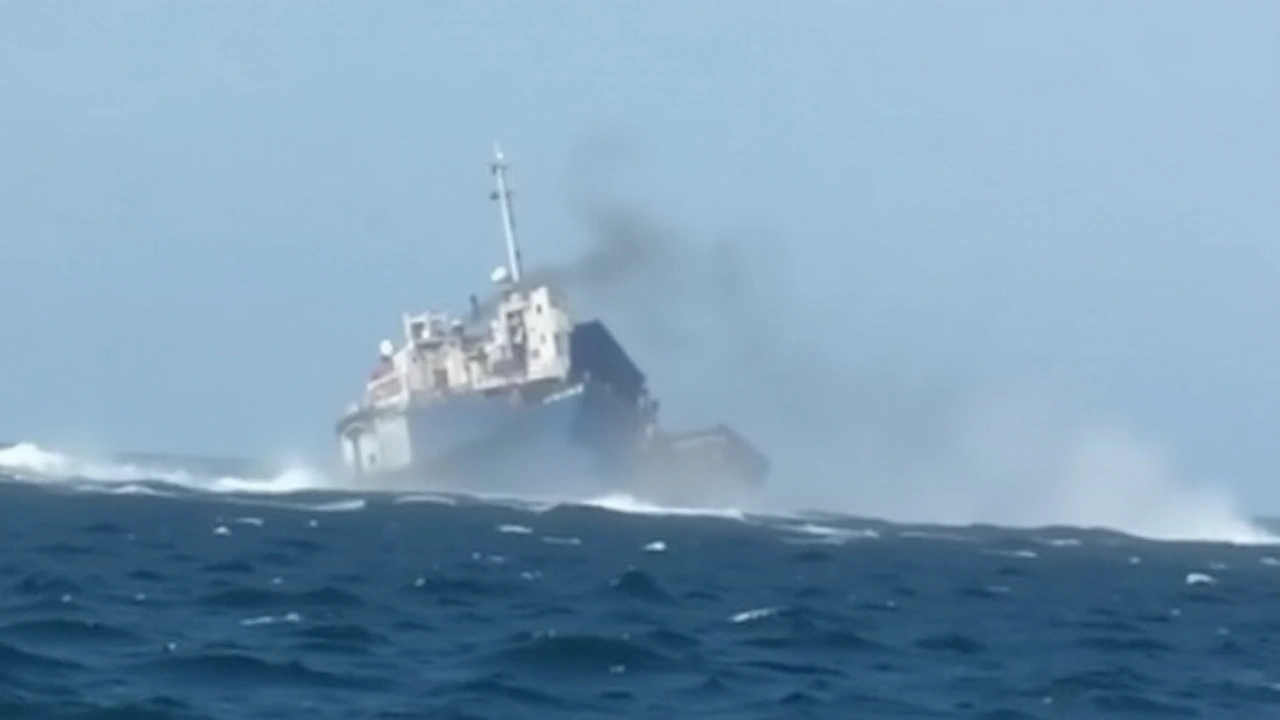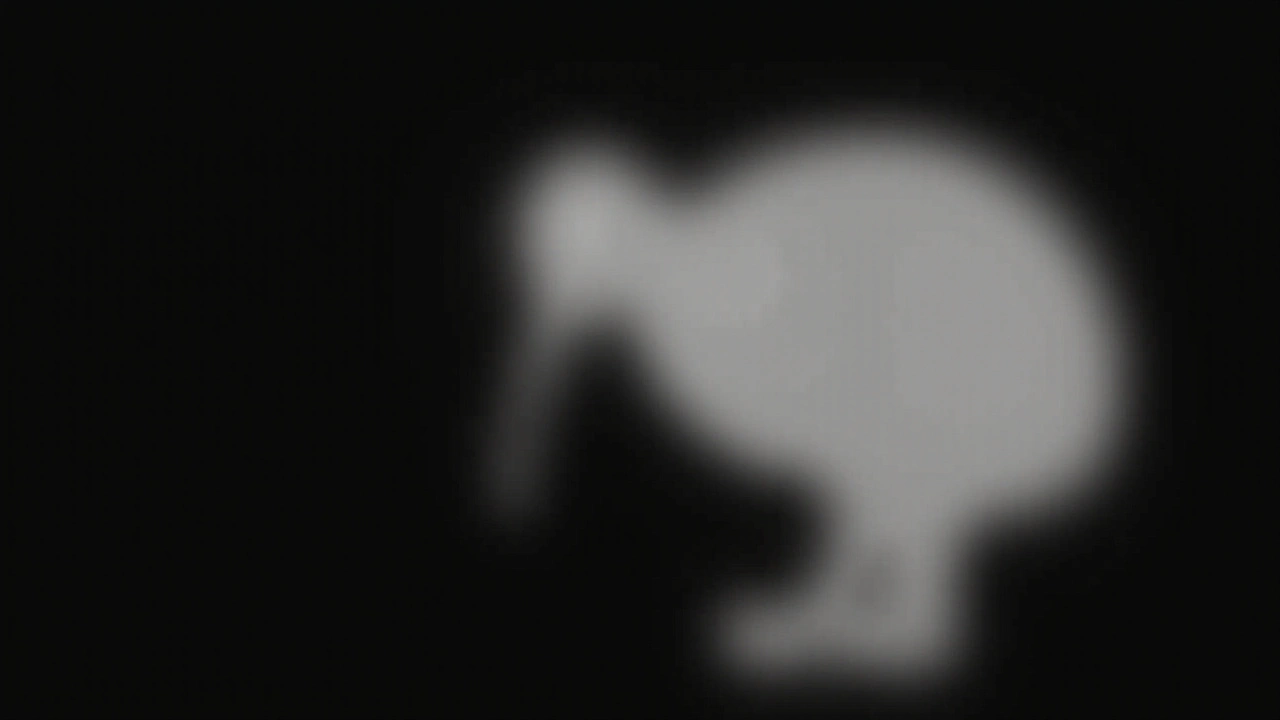The Incident: A Close Call on the High Seas
The waters surrounding Samoa are no stranger to maritime activities, but on October 5, 2024, the tides took a different turn as the HMNZS Manawanui, New Zealand's dive and hydrographic ship, struck a reef south of Upolu. An incident that could have spiraled into catastrophe was averted when all 75 personnel on board were successfully rescued. The ship, however, wasn't as fortunate, suffering damage that led to its eventual sinking. Now, as the sea swallows its metallic form, the New Zealand Defence Force (NZDF) is set to unravel the details surrounding this maritime mishap through a formal Court of Inquiry (COI).
Inside the Inquiry: A Mission for Truth
The COI, tasked with the responsibility of dissecting and understanding the intricacies of the incident, is led by Commodore Melissa Ross. This is no ordinary assembly; it involves seasoned veterans who bring extensive expertise to the table. Captain Andrew Mahoney, Group Captain John McWilliam of the Royal New Zealand Air Force, and Captain Dean Battilana, who has been seconded from the Royal Australian Navy, contribute critical insights. They are joined by Commander Jonathan Rowe, a legal mind ensuring that the statutory requirements are met, assisting the inquiry as both a barrister and solicitor of the High Court.

Exploring the Depths: Objectives and Scope
The terms of reference for the COI outline a comprehensive mandate: to collect evidence, document the sequence of events, and understand the nuances that led to the grounding and subsequent sinking of the HMNZS Manawanui. The inquiry further explores the notification procedures that followed, injuries sustained, and any environmental repercussions. Importantly, it evaluates the organizational aspects linked to the ship's material state before its encounter with the reef. This procedural rigour seeks not only to uncover what went awry but to chart a path forward, pinpointing improvements that enhance maritime safety and readiness in the future.
Transparency and Privacy: Balancing Public Interest
In light of significant public interest, Rear Admiral Garin Golding has emphasized a commitment to transparency. The findings, aligned with the Privacy Act and national security obligations, will be made publicly accessible to a considerable degree. An interim report covering specific focus areas is slated for release by mid-November, with ongoing updates promising to keep the public informed on the inquiry's progress. Yet, as required by sections 200 to 201 of the Armed Forces Discipline Act 1971, the proceedings are held in private. This confidentiality ensures that witnesses feel comfortable providing candid, unreserved testimonies, key to uncovering the full truth.

A Team of Experts: Navigating the Inquiry
Each member of the COI carries a weight of experience that underscores the gravity of this investigation. Captain Andy Mahoney, having served across both the Royal Navy and RNZN, brings valuable insight as the former commissioning Captain of the HMNZS Manawanui. Meanwhile, Captain Dean Battilana’s profound hydrography expertise has seen him command various vessels, lending critical technical knowledge to assess the incident. Group Captain John McWilliam enriches the inquiry with an aerial perspective from his extensive Royal New Zealand Air Force service, rounding out a team fully equipped to tackle the investigative challenges head-on.
Charting New Waters: Learning and Adapting
The Court of Inquiry into the sinking of the HMNZS Manawanui is more than an investigative procedural; it is an opportunity for the NZDF to learn and adapt. The insights gleaned will serve as a compass, guiding corrective measures that fortify the Defence Force’s operational protocols. The lessons learned will inevitably feed into the larger narrative of maritime safety, enhancing preparedness and resilience in the face of future challenges. As Rear Admiral Golding emphasizes, maintaining transparency while securing national interests achieves a fine balance that respects public curiosity and prudence.
Ultimately, the inquiry transcends the immediate quest for answers, embodying a broader commitment to safer seas for New Zealand’s naval community and those it serves. It’s a reflective moment for the nation's military, one that underscores the imperatives of operational vigilance and underscores the precarity of working in challenging marine environments.






so the manawanui sank huh? guess all that 'modern naval tech' is just fancy metal with poor gps. i mean, how hard is it to not hit a reef? even my phone maps know where the shallow bits are. 🤷♂️
It's actually pretty impressive that all 75 crew were rescued without loss of life. Maritime accidents like this are often deadly, especially in remote areas. The fact that the rescue ops worked so well speaks volumes about NZDF training and coordination.
Let's be clear: this isn't an accident. It's a systemic failure. The ship was clearly not maintained to operational standards. And now we get a 'court of inquiry'-as if that somehow fixes the rot.
someone's gotta pay for this. 75 lives on a ship that couldn't even read a map. i'm not mad, i'm just disappointed. like, come on. we're not in the 1800s.
THIS IS A NATIONAL DISGRACE. A NAVAL SHIP. SUNK BY A REEF. LIKE A BOAT ON A LAKE. WHAT WAS THE CREW DOING? SLEEPING? TEXTING? DID THEY FORGET TO TURN ON THE NAVIGATION SYSTEM? I'M SICK TO MY STOMACH. THIS IS WHY WE CAN'T HAVE NICE THINGS.
The reef didn't sink the ship. The bureaucracy did. The silence before the inquiry, the lack of transparency in maintenance logs, the unspoken pressure to deploy despite known risks... the real tragedy is the institutional denial. The sea just exposed it.
We need to stop treating these incidents as isolated failures. This is part of a pattern of underfunding and overstretching our defense assets. We can't keep asking sailors to risk their lives with outdated gear and no backup systems. Time to invest, not investigate.
REEF? 🤡 That's not even a glitch-that's a meme waiting to happen. "NZDF: We tried to avoid the reef. We thought it was a whale." 🐋🌊 #ManawanuiSunkByGoogleMaps
I just want to say thank you to the rescue teams. Seriously. No matter what went wrong, getting 75 people out alive in open ocean? That’s heroism. And the fact that they’re doing a proper inquiry? That’s integrity. We need more of that.
I think... it's important... to note... that the inquiry... is being led... by experienced personnel... with clear mandates... and that... transparency... is being prioritized... within legal boundaries... and... this... is... actually... a... responsible... approach...
Oh please. The whole thing was a PR stunt. They knew the ship was rusting and sent it out anyway. The 'court of inquiry'? A show trial to cover up the fact that someone in the chain of command was too lazy to fix it. And now they're hiding behind 'national security' like it's a magic shield. Pathetic.
The hydrography team on this inquiry is key. The waters near Samoa have shifting seabeds and outdated charts-this isn't just about human error. Even experienced crews can get tripped up if the data they're working with is incomplete. The real lesson? We need better real-time bathymetric mapping for all regional operations. This isn't just NZ's problem-it's a Pacific-wide issue.